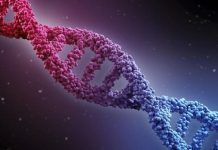Heavy alcohol consumption may cause permanent dysregulation of neurons, or brain cells, in adolescents, according to a new study in mice.
The findings, published in the journal Neuropharmacology, suggest that exposure to binge-levels of alcohol during adolescence, when the brain is still developing, leads to long-lasting changes in the brain’s ability to signal and communicate.
This potentially sets the stage for long-term behavioural changes and hinting towards the mechanisms of alcohol-induced cognitive changes in humans.
“What we’re seeing here is that if adolescent binge drinking knocks neurons off this trajectory, they might not be able to get back, even if the alcohol consumption stops,” said Nikki Crowley, Assistant Professor in biology and biomedical engineering at The Pennsylvania State University.
The prefrontal cortex is a key brain region for executive functioning, risk assessment and decision-making.
According to Crowley, it’s not fully formed in adolescents and is still maturing in humans until around age 25. Disruptions to its development in young people may have serious and long-lasting consequences, added Crowley.
“Heavy binge drinking is problematic for everyone, and should be avoided, but adolescent brains appear to be particularly vulnerable to the consequences, which in humans, will follow them for decades,” Crowley said.
The team used a model of adolescent ethanol exposure in mice to understand how different populations of neurons in the cortex, the outermost layer of the brain, are changed by voluntary binge alcohol consumption.
They gave mice access to alcohol during a 30-day period. Due to their faster development and shorter lifespan, this corresponded to roughly ages 11-18 in human years.
The results showed that somatostatin neurons, a key population of cells that provides inhibition of neurotransmitter release from other cell types throughout the brain and helps to “dampen the noise”, appeared to be permanently dysregulated in the mice that binge drank as compared to mice that were only provided water throughout development.
The neurons were more excitable — meaning they were signalling too much and dampening the activity of other key neurons — as far out as 30 days after the mice stopped drinking alcohol, when the mice have transitioned into adulthood.
“Neurons have a relatively fixed developmental trajectory — they need to get where they are going and sync up with the right partners during specific periods of development in order to function properly,” explained Crowley.
20230612-115004




